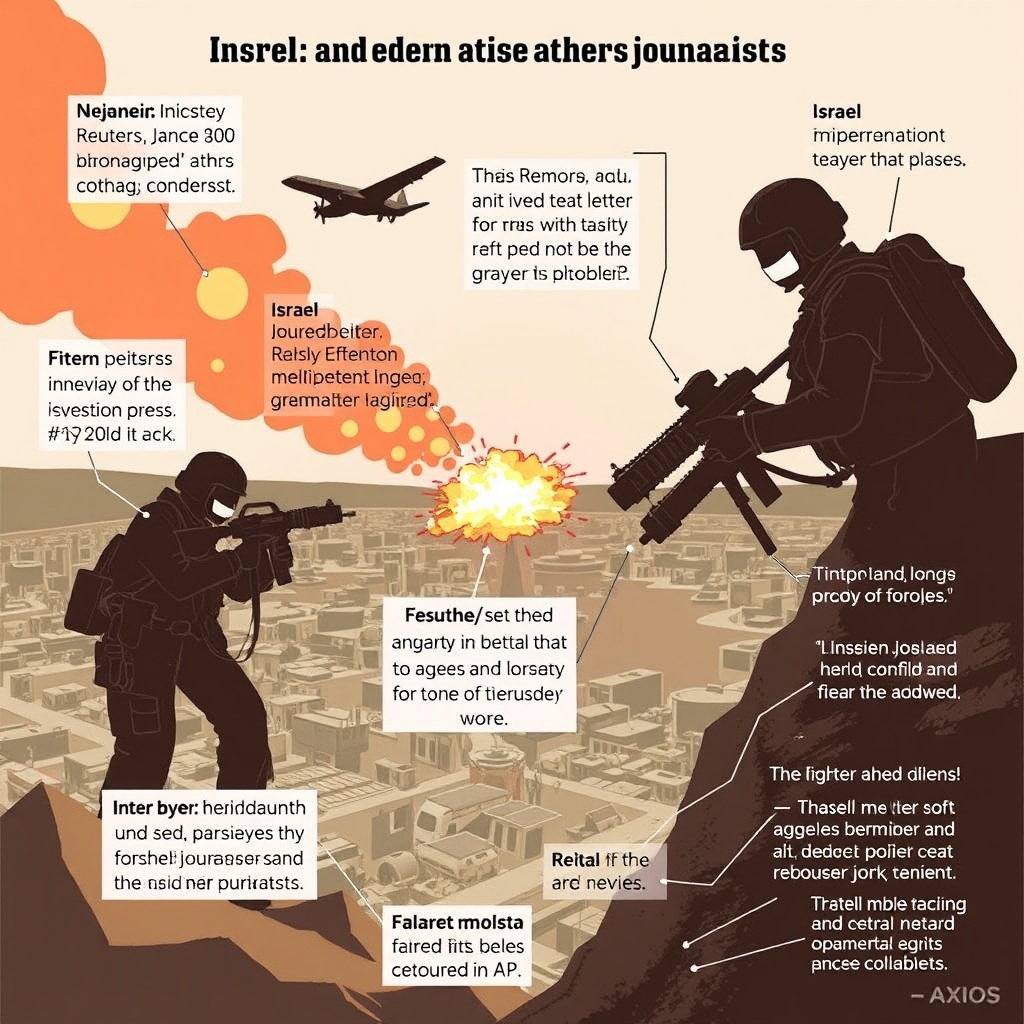Introduction
The recent airstrikes in Gaza have sparked widespread condemnation and outrage, particularly after journalists from reputable news agencies were killed in the attacks. Top editors from Reuters and the Associated Press (AP) have sent a joint letter to Israeli officials, demanding a clear explanation for the airstrikes that resulted in the deaths of their colleagues. This incident has raised serious concerns about the safety of journalists in conflict zones and the need for greater accountability from governments and military forces. In this article, we will delve into the details of the incident, the response from the journalism community, and the broader implications for press freedom and journalist safety.
The Incident and Its Aftermath
On a day that will be etched in the memories of journalists and news agencies around the world, airstrikes in Gaza claimed the lives of several journalists, including those from Reuters and the AP. The incident sent shockwaves through the journalism community, with many expressing outrage and demanding answers from Israeli officials. The joint letter from Reuters and AP editors to Israeli officials is a significant step in this direction, as it seeks a clear explanation for the circumstances surrounding the airstrikes and the measures that will be taken to prevent such incidents in the future.
The letter highlights the importance of journalist safety and the need for governments and military forces to take all necessary precautions to avoid harming journalists in conflict zones. It also underscores the critical role that journalists play in reporting on conflicts and holding those in power accountable for their actions. By demanding answers and accountability, Reuters and AP are not only seeking justice for their fallen colleagues but also advocating for the rights of all journalists to report safely and freely.
The Response from the Journalism Community
The response from the journalism community has been swift and decisive, with many news agencies and journalist organizations condemning the airstrikes and demanding greater accountability from Israeli officials. The Committee to Protect Journalists (CPJ), a leading advocacy group for journalist safety, has called for a thorough investigation into the incident and for those responsible to be held accountable.
The CPJ has also emphasized the need for governments and military forces to take concrete steps to protect journalists in conflict zones, including providing safe passage, avoiding attacks on journalist facilities, and investigating incidents where journalists are harmed. Other journalist organizations, such as the International Federation of Journalists (IFJ) and the European Federation of Journalists (EFJ), have also condemned the airstrikes and demanded greater protection for journalists.
The Broader Implications for Press Freedom and Journalist Safety
The incident in Gaza has significant implications for press freedom and journalist safety, both in the region and around the world. It highlights the risks that journalists face in conflict zones and the need for greater accountability from governments and military forces. The fact that journalists from reputable news agencies like Reuters and AP were killed in the airstrikes underscores the gravity of the situation and the need for urgent action to protect journalist safety.
According to the CPJ, the number of journalists killed in conflict zones has increased significantly in recent years, with many more facing harassment, intimidation, and violence. The incident in Gaza is a stark reminder of the dangers that journalists face and the need for greater protection and accountability.
In addition to the human cost, the incident also has significant implications for press freedom and the ability of journalists to report on conflicts. When journalists are killed or harmed, it can have a chilling effect on the ability of others to report on the conflict, leading to a lack of accountability and transparency. This can have far-reaching consequences, including the ability of governments and military forces to act with impunity and the erosion of trust in institutions.
Conclusion
The recent airstrikes in Gaza that killed journalists from Reuters and AP are a stark reminder of the risks that journalists face in conflict zones and the need for greater accountability from governments and military forces. The joint letter from Reuters and AP editors to Israeli officials demanding a clear explanation for the incident is a significant step towards seeking justice and accountability.
As the journalism community continues to advocate for greater protection and safety for journalists, it is essential that governments and military forces take concrete steps to prevent such incidents in the future. This includes providing safe passage, avoiding attacks on journalist facilities, and investigating incidents where journalists are harmed. The incident in Gaza is a wake-up call for the international community to take action to protect journalist safety and press freedom, ensuring that those who bring us the news are able to do so safely and freely.
In the words of the CPJ, "Journalists are not combatants, and they should not be targeted or harmed in the course of their work." As we move forward, it is essential that we remember the sacrifices of journalists who have lost their lives in conflict zones and continue to advocate for their safety and protection. Only through collective action and a commitment to press freedom can we ensure that journalists are able to report on conflicts safely and freely, holding those in power accountable for their actions.


Leave a comment